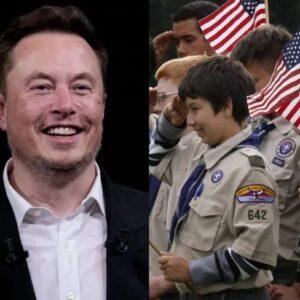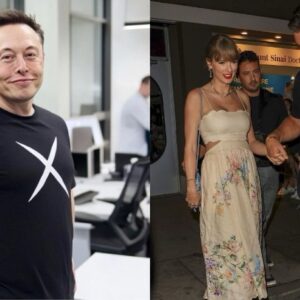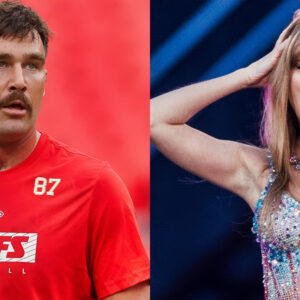In a move that has sent shockwaves through both the entertainment industry and the wider cultural landscape, Elon Musk has made a bold statement by blocking Disney’s Pride content on his social media platform, X (formerly Twitter). Musk, who has long been a figure of controversy and influence in the tech world, seems to have drawn a line in the sand over the ongoing debate between progressivism and traditional values in media and entertainment. His recent comments, claiming that “woke” content is “not for kids,” have sparked intense debate and criticism, particularly from progressive communities who view this as a direct attack on LGBTQ+ visibility in mainstream media.
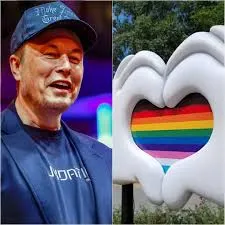
The controversy began when Disney, one of the largest media conglomerates globally, launched its Pride Month content across its platforms, including X. The content, which included messages of support for LGBTQ+ rights, rainbow-themed content, and pride messages, was meant to celebrate and uplift marginalized communities, especially the LGBTQ+ youth. Disney has long been at the forefront of promoting diversity and inclusion in its media, from TV shows to movies, particularly with its recent inclusion of LGBTQ+ characters in major productions like Lightyear and Strange World.
However, Musk, whose company X (formerly Twitter) has increasingly become a hub for political and cultural discourse, made it clear that he does not support such content. In a series of posts, Musk shared his belief that “woke” ideology, which often encompasses social justice causes such as LGBTQ+ rights, racial equality, and feminism, has no place in children’s entertainment. He further stated, “Woke is not for kids,” drawing a sharp line between what he considers acceptable in children’s media and what he views as overly politicized content.
In addition to making his position clear through posts, Musk also took concrete steps to enforce his stance. According to reports, he personally blocked or removed certain Pride-related content from X, effectively silencing or limiting its visibility on the platform. This move led to backlash from those who saw it as an attempt to stifle free expression, while others applauded it as a stand against what they perceive as the overreach of progressive ideologies into family-oriented entertainment.
Musk’s actions on X have become a point of tension, with many accusing him of using the platform as a political tool to impose his own personal views on the public. Some critics argue that Musk is further polarizing the debate over LGBTQ+ rights, while others defend his decision, claiming that he is simply protecting children from what they view as “inappropriate” content.
Disney, for its part, has stood firm in its commitment to LGBTQ+ inclusion, but Musk’s actions highlight the growing divide between corporations and certain sectors of society over how far diversity and inclusion efforts should go. Disney’s decision to embrace Pride Month content and LGBTQ+ characters has been met with both praise and pushback, with some conservatives accusing the company of pushing a “woke” agenda. Musk’s actions on X only serve to escalate this ongoing cultural war, as corporations like Disney find themselves caught between the pressure to cater to progressive values and the pushback from more conservative audiences.
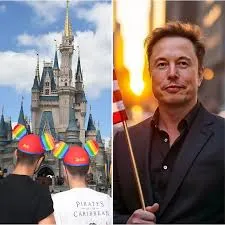
For Disney, the question remains whether this controversy will have lasting effects on their business. While Disney has faced pressure from conservative groups in the past, it has continued to double down on its commitment to inclusivity, especially as a global entertainment leader. However, with Musk’s immense influence and his significant following on X, some wonder whether this could impact Disney’s ability to reach certain audiences in the future. Musk, known for his massive following on X, has long been a central figure in shaping the discourse around technology, politics, and culture, and his stance on these issues is closely watched by millions.
Musk’s remarks reflect a broader backlash against what some conservatives and moderate voices perceive as the overreach of progressive ideologies, particularly the push for LGBTQ+ rights and racial justice in the media. The term “woke,” often used pejoratively, has become a catch-all phrase for policies and cultural movements that challenge traditional norms and advocate for social justice.
For Musk, this has become a focal point of his opposition to what he sees as the “woke” agenda invading all aspects of society, including media. His comments about Pride content not being appropriate for children resonate with a growing sentiment among certain groups who argue that children should not be exposed to complex social issues like gender identity and sexuality at an early age. This view is at odds with the growing movement for greater LGBTQ+ representation in children’s media, which advocates for normalizing diverse identities and experiences from a young age.
Musk’s actions also highlight the increasing role that social media platforms like X play in shaping public discourse and influencing cultural shifts. While Musk’s statements have sparked controversy, they also reflect the ongoing tension between freedom of expression and the desire for regulation in the digital age. Platforms like X are increasingly being seen as battlegrounds for ideological and cultural wars, where users, celebrities, politicians, and corporations vie for influence over the public.
The debate over “woke” content in children’s entertainment is a microcosm of the larger battle between progressive and conservative forces in society. As Musk’s actions on X show, social media is becoming an arena where cultural battles are fought with increasing intensity, often with far-reaching consequences.
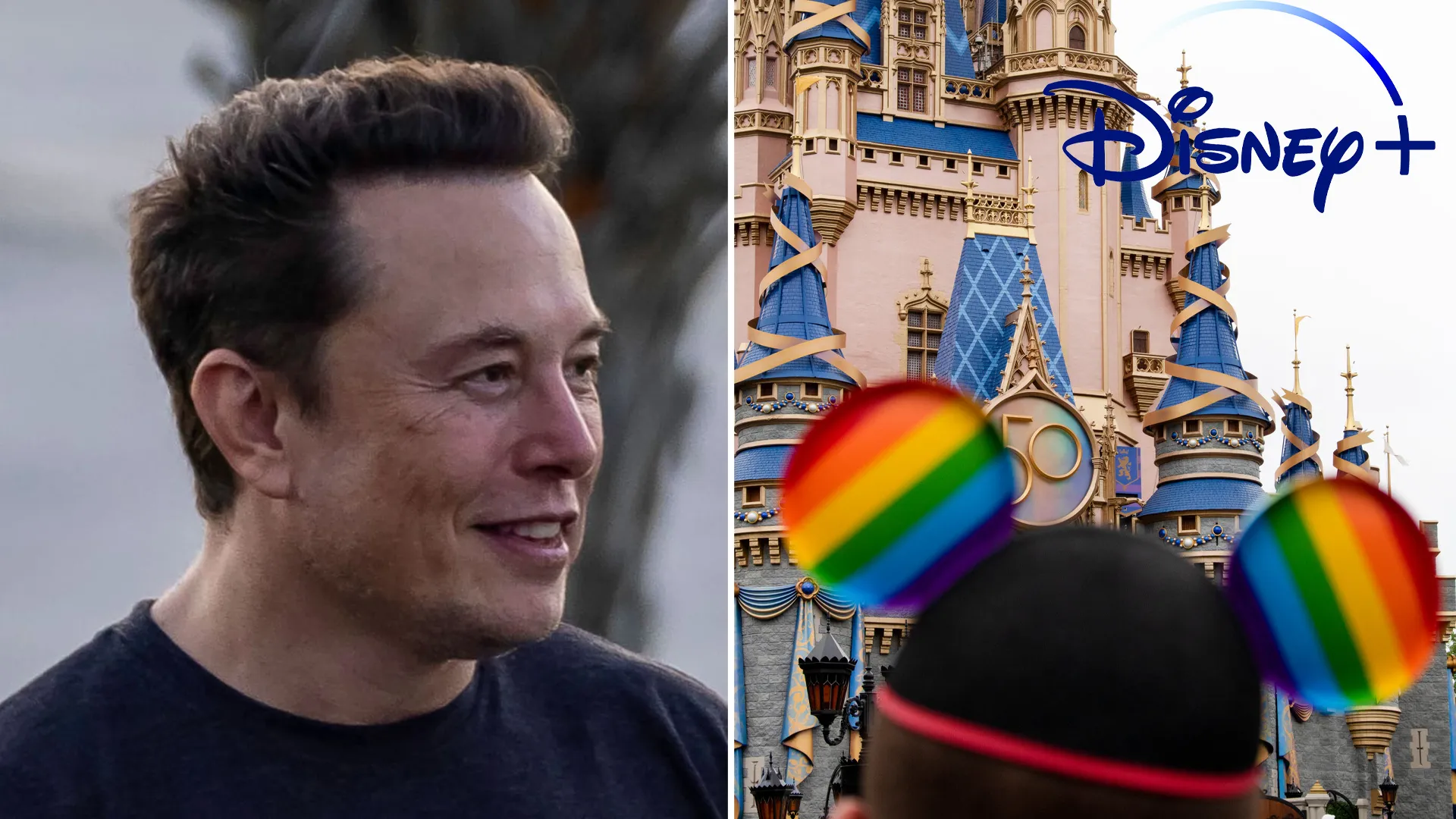
Elon Musk’s decision to block Disney’s Pride content and his declaration that “woke” is not for kids marks a new chapter in the ongoing culture wars, particularly the debate over LGBTQ+ representation in media. While Musk’s move has earned praise from conservatives and those opposed to “woke” ideology, it has also triggered outrage from progressives and advocates of LGBTQ+ rights, who view it as a dangerous attack on inclusion and equality.
The broader question remains: how far will companies like Disney continue to push for inclusive content, and what impact will this cultural divide have on future media and entertainment? With Musk using his platform to influence the narrative, it seems that the debate over what is appropriate for children and what role “woke” content should play in media is far from over. As this cultural battle rages on, one thing is clear: the entertainment industry, social media platforms, and society as a whole are at a crossroads, where the clash of values will continue to shape the future of content consumption.
